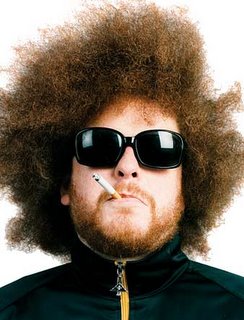Narrative is a way that we all superimpose something over something that’s essentially chaotic. Narrative gives us comfort. It gives us a false sense of security, often. It abolishes demons and trauma, and so I think that story has a very complicated origin for all of us, and we all desire—part of the whole nuance, I think, of this film has to do with the fact that we so want to know who should be in and who should be out, who’s bad and who’s good, and we know from our own lives, and we know from the kinds of compromises, human compromises that we make in the interstitial moments of our own personal lives that so much of it we just have to accept this is just the way it is. You go to the ballpark and it rains, and that’s what happens. … You can’t abolish that chaos. That, in fact, the great, ultimate payoff of narrative is that it both superimposes order and also reminds us of how chaotic it is, and that’s the beauty.
Dehnart then extends this to reality TV - the appealing thing about reality TV are the narrative arcs - but I'd go even further and say that this is what fuels the human impulse to create art: the urge to establish order over chaos. Whether it's art, music, writing, dance - the art that appeals to us most is that which brings order to our chaotic world.
I'm a fan of reality TV - American Idol, America's Got Talent, The Amazing Race and, uh, The Bachelor(ette) - so I won't slag on your choice but if you're a fan, too, I suspect the appeal is the same: the narrative that creates a compelling story.




No comments:
Post a Comment